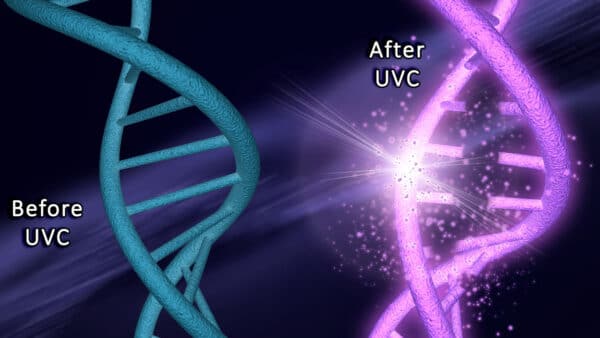Traditionally, chlorine has been the go-to chemical for disinfecting water, but with advancements in technology, ultraviolet (UV) based disinfection has emerged as a compelling alternative. UV light offers a range of benefits over chlorine and other chemical methods, making it a superior choice for water treatment in various industries.
Chlorine, while effective in killing pathogens, comes with several significant drawbacks. These include:
1. Chemical Byproducts: Chlorine reacts with organic matter in water to form disinfection byproducts (DBPs) such as trihalomethanes (THMs) and haloacetic acids (HAAs). These byproducts have been linked to various health risks, including cancer and reproductive issues.
2. Taste and Odour: Chlorine can impart an unpleasant taste and smell to water, which is particularly undesirable in drinking water applications.
3. Handling and Storage: Chlorine is a hazardous chemical that requires careful handling and storage to prevent accidents and leaks, posing risks to both workers and the environment.
4. Environmental Impact: Chlorine residuals can harm aquatic life if released into natural water bodies, disrupting ecosystems and biodiversity.
The Advantages of UV Based Disinfection
UV technology, on the other hand, presents a host of benefits that make it a cleaner, safer, and more efficient option:

1. No Chemical Residues: UV light inactivates microorganisms by damaging their DNA, preventing them from reproducing. This process leaves no chemical residues or byproducts, ensuring that the water remains pure and safe.
2. Effective Against a Wide Range of Pathogens: UV based disinfection is highly effective against bacteria, viruses, and protozoa, including chlorine-resistant pathogens such as Cryptosporidium and Giardia.
3. No Taste or Odour Issues: Since UV treatment does not involve adding chemicals to the water, it does not affect the taste or smell, preserving the natural quality of the water.
4. Safety and Ease of Use: UV systems are straightforward to install and operate. They do not require the handling of hazardous chemicals, reducing risks to personnel and the environment.
5. Environmentally Friendly: UV systems use only electricity to generate UV light, producing no harmful emissions or byproducts. This makes it a sustainable choice with minimal environmental impact.
6. Cost-Effective: Over time, UV systems can be more cost-effective than chemical disinfection. There are no ongoing chemical costs, and maintenance is relatively low.
Applications of UV Based Disinfection
UV systems are versatile and can be applied in various sectors, including:
- Municipal Water Treatment: Ensuring safe drinking water for communities.
- Wastewater Treatment: Treating wastewater before it is released back into the environment.
- Aquaculture: Maintaining clean water for fish farming and other aquatic industries.
- Food and Beverage: Ensuring the safety of water used in food and beverage processing.
- Marine Industry: Treating ballast water to prevent the spread of invasive species.




Why Choose Alpha-Purify for Your UV Lamp Technology?
At Alpha-Purify, we are committed to providing high-quality UV lamp technology tailored to meet the needs of various industries. Our medium-pressure UV lamps, along with our range of low-pressure and amalgam lamps, are designed to deliver reliable and efficient performance. Additionally, our accessories, such as quartz sleeves, O-rings, ballast power supplies, UV sensors, and control panels, ensure that your UV systems operate optimally.
By choosing Alpha-Purify, you benefit from our extensive experience and R&D capabilities, positioning us at the forefront of UV lamp technology. We are dedicated to helping you achieve safe, effective, and environmentally friendly water disinfection.
For more information or to discuss your specific needs, Contact Us today. Let's work together to ensure a cleaner, safer future with UV based disinfection.